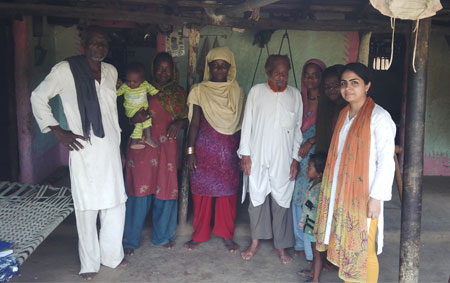The first internationally-recognised certificate of compliance under the Nagoya Protocol on Access to Genetic Resources and the Fair and Equitable Sharing of Benefits Arising from their Utilisation was issued to SAC PhD student Seema Solanki on 1 October 2015.
Earlier this year Seema received a permit from India’s National Biodiversity Authority to conduct research on the ethnomedical knowledge of a Siddi community in Gir Forest, Gujarat. This permit is evidence that access to genetic resources was based on prior informed consent and was made available to the Access and Benefit-sharing (ABS) Clearing House under the terms of the Nagoya Protocol, which stipulates that such permits must be constituted by the ABS as an internationally-recognised certificate of compliance. With this certificate, Seema can now demonstrate that she has respected the ABS requirements of India when using the ethnomedical knowledge she gathered from the Siddis.
The Siddis are descended from African slaves and have been settled in Gir Forest for several centuries. They have an extensive knowledge of local flora and fauna. During her research, Seema has found that the Siddis not only know how to use a wide range of medicinal plant species, but also have intimate understandings of the local lion population and have contributed to their conservation. The constitution of her certificate is a major step toward making the Nagoya Protocol operational. Seema’s research is also attracting a lot of attention from the media (The Times of India, Indian Documentary Foundation) and the United Nations.

